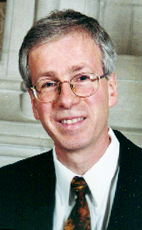|
|
The Hon. Stéphane Dion (born September 28, 1955 in Quebec City, Quebec) is a Canadian academic and politician. After obtaining a bachelors degree and a masters degree in political science from Université Laval in 1977 and 1979 respectively and a doctorate in sociology from the Institut d’études politiques de Paris (more widely known as Sciences Po), Stéphane Dion taught political science at the Université de Moncton in 1984 and the Université de Montréal from 1984 to January 1996. He specialized in the study of public administration and organization analysis and theory.
During the same period, Stéphane Dion was also a visiting professor at the Laboratoire d'économie publique in Paris, senior research fellow at the Brookings Institution in Washington, D.C., co-director of the Canadian Journal of Political Science and research fellow with the Canadian Centre for Management Development. Between 1987 and 1995, he published a number of books and articles on political science, public administration and management.
Dion is a current member of the Liberal Party of Canada in the Canadian House of Commons, representing the riding of Saint-Laurent—Cartierville since 1996. First elected to the House of Commons in a 1996 by-election, Stéphane Dion was re-elected in 1997, 2000 and 2004. Stéphane Dion was sworn in as President of the Queen’s Privy Council for Canada and as Intergovernmental Affairs minister on January 25, 1996, positions he held until December 12, 2003. In that capacity, he supported the Prime Minister of Canada, federal ministers, and the provincial and territorial governments in working together in a manner that is mindful of their respective responsibilities, to serve Canadians.
On Jan. 25, 1996, Mr. Dion was sworn in as President of the Queen's Privy Council for Canada and Minister of Intergovernmental Affairs, a position he held until Dec. 12, 2003. As intergovernmental affairs minister in Jean Chrétien's cabinet he was considered a hard-line federalist with his advocacy of "Plan B" and the Clarity Act, which was designed to make Quebec independence more difficult to achieve. He had a significant role in events leading up to the Supreme Court opinion on the unilateral secession of Quebec, handed down on Aug. 20, 1998, and on the Clarity Act of March 15, 2000.
He was not in Prime Minister Paul Martin's first cabinet but he returned to the front benches on July 20, 2004 with his appointment as Minister of the Environment.
| 27th Ministry - Government of Paul Martin | ||
| Cabinet Posts (1) | ||
| Preceded by: David Anderson | Minister of the Environment (2004-) | Succeeded by: (incumbent) |
| 26th Ministry - Government of Jean Chrétien | ||
| Cabinet Posts (2) | ||
| Preceded by: Marcel Massé | Minister of Intergovernmental Affairs (1996-2003) | Succeeded by: Pierre Pettigrew |
| Preceded by: Marcel Massé | President of the Queen's Privy Council for Canada (1996-2003) | Succeeded by: Denis Coderre |

